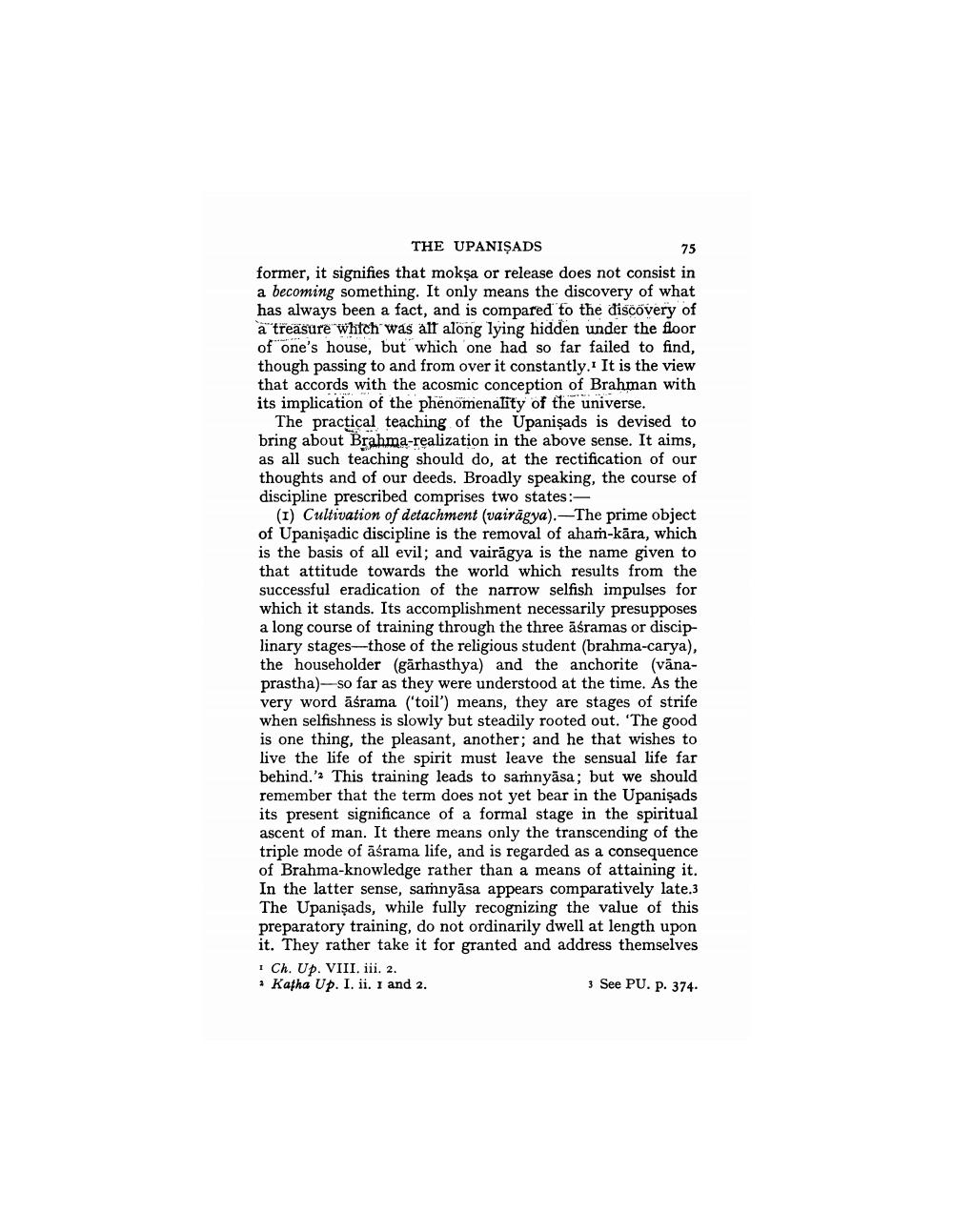________________
THE UPANISADS former, it signifies that mokṣa or release does not consist in a becoming something. It only means the discovery of what has always been a fact, and is compared to the discovery of a treasure whtch was all along lying hidden under the floor of one's house, but which one had so far failed to find, though passing to and from over it constantly. It is the view that accords with the acosmic conception of Brahman with its implication of the phenomenality of the universe.
The practical teaching of the Upanişads is devised to bring about Brahma-realization in the above sense. It aims, as all such teaching should do, at the rectification of our thoughts and of our deeds. Broadly speaking, the course of discipline prescribed comprises two states:
(I) Cultivation of detachment (vairāgya).-The prime object of Upanişadic discipline is the removal of aham-kāra, which is the basis of all evil; and vairāgya is the name given to that attitude towards the world which results from the successful eradication of the narrow selfish impulses for which it stands. Its accomplishment necessarily presupposes a long course of training through the three aśramas or disciplinary stages-those of the religious student (brahma-carya), the householder (gärhasthya) and the anchorite (vānaprastha) - so far as they were understood at the time. As the very word āśrama ('toil') means, they are stages of strife when selfishness is slowly but steadily rooted out. 'The good is one thing, the pleasant, another; and he that wishes to live the life of the spirit must leave the sensual life far behind.'? This training leads to samnyāsa; but we should remember that the term does not yet bear in the Upanişads its present significance of a formal stage in the spiritual ascent of man. It there means only the transcending of the triple mode of äśrama life, and is regarded as a consequence of Brahma-knowledge rather than a means of attaining it. In the latter sense, samnyāsa appears comparatively late.3 The Upanişads, while fully recognizing the value of this preparatory training, do not ordinarily dwell at length upon it. They rather take it for granted and address themselves 1 Ch. Up. VIII. iii. 2. * Katha Up. I. ii. 1 and 2.
3 See PU. P. 374.




